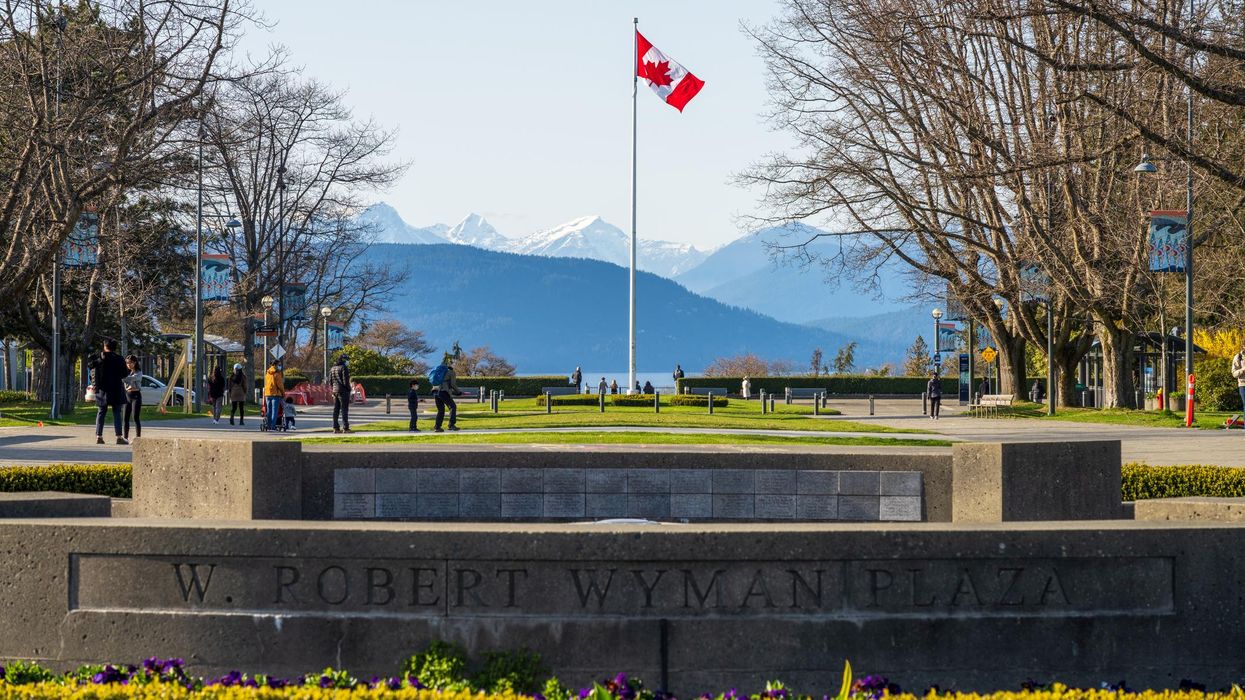Student Loan Repayments In Canada Are Changing & More People Won't Have To Pay
Over 180,000 graduates will pay less (or nothing) every year!

University of British Columbia.
The federal government has announced changes to student loans in Canada — and they mean more graduates will be able to avoid loan repayments for longer.
In a notice on Tuesday, Employment and Social Development Canada confirmed changes to the Student Financial Assistance Program’s Repayment Assistance Plan which it says will "provide important financial relief to young Canadians as they begin their careers."
Effective November 1, the zero-payment income threshold for both Canada Student Loans and Canada Apprentice Loans will increase to $40,000, up from $25,000.
This means that borrowers who earn under $40,000 will no longer have to start repaying their student loans until they make at least that amount.
Previously, graduates were required to start paying off their student and apprentice loans once their annual salary reached at least $25,000.
What's more, the government has committed to indexing the zero-payment income threshold to inflation every year going forward — so that future borrowers can avoid unaffordable repayments too.
There are some good news as well for those who will still have to pay off their loans, as the cap on monthly affordable payments is being lowered on the same date, going from 20% of an individual's household income down to 10%.
This means the maximum a graduated student would have to pay off their loans each month can only be up to 10% of their household income. Employment and Social Development Canada states in the release that this change will ensure "no borrower has to pay more than they can reasonably afford."
The changes are expected to benefit as many as 180,000 Canadians every year.
Speaking on Tuesday, Employment, Workforce Development and Disability Inclusion Minister Carla Qualtrough explained, "Starting today, more graduates can focus on building their careers, instead of worrying about student loans. This is so important."
According to the notice, governments in Nova Scotia, Manitoba, Newfoundland and Labrador, New Brunswick and Saskatchewan will implement the same changes to their respective Repayment Assistance Plans.
Things will be a little different for graduates and borrowers in Quebec, the Northwest Territories and Nunavut though, as they have their own student loan programs that work independently of the CSFAP.
How much is the average student loan in Canada?
The average student debt in Canada is just over $28,000, according to the Canadian Federation of Students and TD Bank.
Before the changes announced on November 1, graduates would begin paying this sum off as soon as they started earning $25,000 or above each year.
Do Canadian student loans get forgiven?
For the most part, no.
Generally, unless you apply for formal loan forgiveness through a bankruptcy or proposal (or … well, die), the student debt itself does not go anywhere.
However, there are some exceptions to this. This includes those who become an eligible medical professional.
There are also provincial student loan forgiveness programs.
In 2019, a report from the Parliamentary Budget Officer said that the cost of eliminating tuition fees and forgiving debt for graduates earning less than $70,000 would be of $16 billion in the first year, $13 billion in the second year and $10 billion every year after that.How long does it take to pay off student loans in Canada?
According to the Canadian Federation of Students and TD Bank, it takes the average student over 10 years to pay off their student loans.
The average student debt in Canada is a whopping $28,000, so it's not hard to see why it takes so many people this long to repay their loans.
What happens if I can't repay my student loans in Canada?
Those who are struggling to make their student loans payments have several options, including getting repayment assistance or reducing their monthly payments.
Missing payments can impact your credit score, so it's important to reach out to the relevant agency if you need support.
If you've missed payments over nine months or more, the federal section of your loan will be collected by the CRA instead.
This article's cover image was used for illustrative purposes only.
- Jagmeet Singh Says 'Jacked Up Rents & Crushing Student Debt ... ›
- Here's How Much It Could Cost The Federal Government To Forgive ... ›
- Trudeau Says Student Loan Interest Is Still Being Waived For Post ... ›
- Canada Is Set To Scrap Federal Student Loan Interest & It Includes Loans Already Being Repaid - Narcity ›
- Canada Wants To Eliminate Federal Student Loan Interest & One Province Is Going Even Further - Narcity ›
- Here's What You Need To Know About Recent Changes To Student Loans In Canada - Narcity ›
- 6 Things Students In Canada Should Know About For 2023 Including Loan Repayments & Tax Credits - Narcity ›
- The Federal Government Made Changes To Student Loans In 2022 & Here's What You Might've Missed - Narcity ›